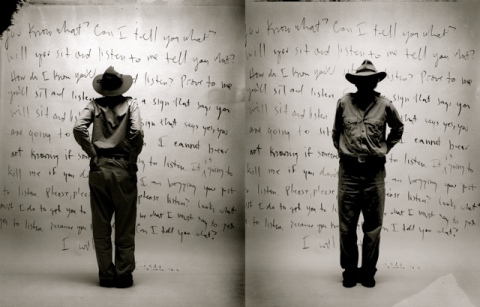
On Lawrencetown Beach north of Halifax, NS. Note that dg is wearing his trademark heirloom baseball cap purchased in Venice during the 2008 VCFA residency in Slovenia. Also camouflage cargo pants purchased at Walmart.
————
Apologies for being somewhat absent from the pages of NC. I’ve been on a reading trip to the East Coast, traveling by car with the dog. Stopped in Fredericton, New Brunswick, where I stayed with Mark Jarman in his grand house facing the Saint John River (on land once owned, yes, by that famous American patriot Benedict Arnold). NC Senior Editor R. W. Gray also lives in that house. And that night we three went out to the Lunar Rogue Pub and met up with Gerard Beirne, thus four, amazingly, four real NC contributors sat at the same table. Next day I moved on to Halifax to stay with my son Jacob, another NC contributor. Jacob took me for steaks at the Henry House the first night after which considerable Ballantine’s Scotch was consumed with Jacob and his roommate Sebastian Ennis (who introduced me to the work of French philosopher Jean-Luc Nancy). I got obsessed with the Dingle Tower, a monument across the Northwest Arm from Jacob’s apartment and thus a salient feature in the landscape out my window. (Needless to say I am sparing you 99% of the photos I happened to take. I spent the driving time listening to Chekhov stories and lectures on the history of Ancient Greece and taking pictures through the car windows and the rearview mirror, a practice worse than operating a cell phone or texting while driving, I think.) One morning I had coffee with Ian Colford at the Dalhousie University Club — you will no doubt recall his contributions to the magazine. Last Monday morning I back-tracked to Sackville, New Brunswick, stayed two days and gave brilliant readings at Mount Allison University and the Université de Moncton. The U de Moncton English Department faculty took me out to dinner (Prince Edward Island scallops) at the Tide & Boar (a so-called gastropub; the name is a pun on the nearby Bay of Fundy’s famous tidal bore) on Main Street. My host in Sackville was Professor Christl Verduyn, a Canadianist of considerable scholarly accomplishment who has written some very intelligent essays about my work; had dinner with Christl and her husband, Mount Allison University President Robert Campbell, at Joey’s on York Street where the waitress announced to us that she was pregnant (this was a first for me, and, in case you want to know, her best friend is pregnant simultaneously). Then I rushed back to Hampton, New Hampshire, for Thanksgiving and more beach walks. Lucy blotted her copybook by assaulting every dog she met. Apparently, she takes exception to New Hampshire dogs. This goes right up there with her insane hatred of small blond children under the age of four.
I tell you this in part so that you know real people write the things you read on these pages; one can occasionally even talk to them in person.
dg

Christ Church Cathedral, Fredericton, NB. Just a few doors down from Mark Anthony Jarman’s house and not to be confused with the Lunar Rogue Pub.

Mark Anthony Jarman taking a picture of dg reflected in the passenger window of the car, or what writers do when they have time on their hands. You can sense the shade of Benedict Arnold. Fredericton, NB

Jacob & Lucy at Lawrencetown Beach, NS

Same as above

Cranberry Lake from the Bluffs Wilderness Trail west of Halifax, NS

Dingle Tower across the Northwest Arm from Jacob’s apartment, Halifax, NS

North of Halifax, heading for the TransCanada Highway, fog and hoarfrost. This photo was taken one-handed while driving at 65 m.p.h. I don’t know if that counts as some kind of record. I might have had a cup of coffee in the other hand, and I know I was listening to a lecture on Archaic Greece.

Sackville Wildfowl Sanctuary, Sackville, NB


North Hampton Beach, NH

Jenness Beach, NH

North Hampton Beach, NH. I could tell you this is me surfing, but you wouldn’t believe me.

Consulting with my editor, Odirone Point, NH
























